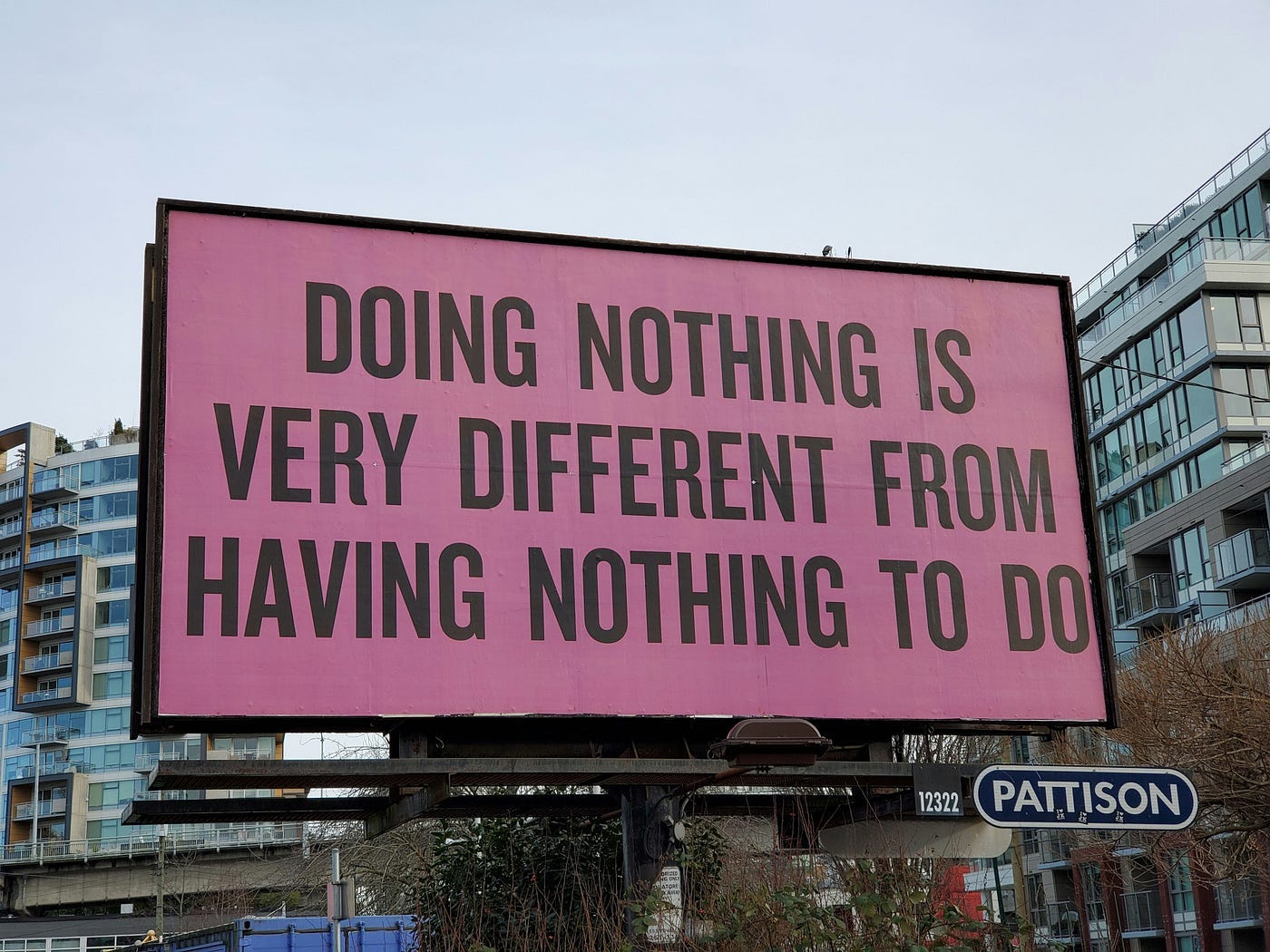The Many Reasons Why Getting a Job is So Hard
People want to work. No one wants to hire. What gives?

Do you notice how many magazines, TV shows, newspapers, and politicians are quick to talk about a labor shortage? If you’re like many job hunters and regular joes, you’re sick and tired of hearing employers wail about how “no one wants to work anymore.”
You know that maddening phrase isn’t true because you’ve applied to hundreds of places only to get turned down. The job market is increasingly difficult, even for jobs like waiting tables or sales. Seeing people whine about “people these days not wanting to work” can make anyone want to pull out their hair.
Getting a job is now an arduous task for many of us and yet mainstream media is adamant about a shortage being afoot. We’re not okay with being gaslit about a fake labor shortage.
People want to work. No one wants to hire. What gives?
AI Discrimination
Believe it or not, you might be able to blame AI for a lack of a job — and not just because of ChatGPT. Sites like Indeed have algorithms that “weed out” and deprioritize job applications that don’t have the qualifications, education, skills, or keywords HR reps want.
If you applied to a bunch of jobs only to hear nothing back, the fault might not be with you or the employer. You might just have a resume that isn’t AI-friendly enough.
Pro tip: Make sure to carefully read job descriptions and try to use as many of their keywords as humanly possible: a quick skill to learn that can help you acclimate to the new world of AI. Adding those keywords can take a while, but doing a little extra work is better than being screened out by a stupid bot.
Real Job, Fake Opportunity
Have you noticed how many companies seem to hire people other than you, yet still post job openings? They did not just deem you a bad fit. Often, they already have a candidate lined up but have to “officially” go through the hiring motions to avoid a lawsuit.
This performance is the most common route for companies that engage in nepotism, have a “friend in the family” they want to hire, or that generally want to make their hiring practices look fairer than they really are.
Fake Job, Fake Opportunity
Most people have encountered fake job ads, often with telltale signs like vague responsibilities and hiring practices. Sometimes, you can tell an ad is not legit because the listing never seems to change. Fake job posts happen for a wide range of reasons.
Sometimes, they’re posted by data scrapers and HR companies as a way to gauge the labor market while getting data. Other times, other job applicants post to get an idea of the competition.
The most common reason why fake job posting seems to happen is because company owners purposefully short-staff their businesses. Keeping up a fake ad convinces their employees that they are “really working to find someone” to do a job they’re just going to continue pawning off on overworked people.
If you’re unlucky, you might have just given your resume to a scammer who just wants to steal your information.
An MLM “Offer”
Multi-level marketing companies are not jobs, but they absolutely pose as jobs. Most of these types of jobs are technically pyramid schemes, but they use a legal loophole to stay in business. Do not take an MLM offer.
Most people who are in MLMs do not do well. In fact, only the top one percent of MLM workers will make enough to live off of. To be successful, you have to be one of the first people in your area and network to sign on — and that means being one of the first in the state. MLMs will make you work your butt off.
You’re better off selling goods you make yourself, simply because no one else will be able to supply them. This option is (oddly enough) less work and more stability than you would ever get with an MLM.
Sadly, MLM companies are multiplying like rabbits. They are all about selling a dream, not selling an actual product. The only thing that will happen if you choose to go for that opportunity is financial loss.
Higher Competition
Finding an article about highly qualified people struggling to find work in their fields doesn’t take too long. One of the many job hunters out there recently published an article where he details applying to almost 1,000 jobs.
There is growing evidence that the number of fake jobs on the market is skewing the real number of available jobs. Did you know that there are millions of people who gave up on finding a job simply due to the sheer number of rejections they got? They threw in the towel, but they’re not counted in the unemployment rate.
Because there are actually fewer legitimate jobs than the media wants to let us know, the competition for the jobs actually available is much higher than we let on. Those HR reps have to leaf through hundreds of resumes per position.
To make matters even worse, we’re no longer just competing with Americans. We’re competing against firms overseas. Along with the benefits of globalization, we also now have to deal with more competition on a global scale.
Pro Tip: If you want to avoid being lost in the flood of applications, aim to chat with companies by a quick message to their HR rep. You can also hit up local networking meets. You never know who will be there. Simply mention your skills or awards and watch interest pique.
Social Media Sniffing
In a normal, sane world, companies would only care about one thing: whether you can do the job well and not pose a risk to the company. In today’s world, that’s not the case. You also have to police yourself on social media.
Most companies search up people on social media prior to hiring them. Things like being caught ranting about life, saying something toxic, or even taking photos with a glass of beer can be enough to get you booted out of a hiring pool.
In certain cases, such as making racist or sexist remarks, this kind of policy makes sense. However, most companies go “whole hog” on their judgements and tend to exclude dedicated employees that would actually help their company grow.
Go figure.
The System Sucks
Every company seems to have at least one horror story about a hire gone horribly wrong. Human Resources reps have to cover their behinds in order to keep their job — and that generally means showing proof they picked well.
This practice is why many HR offices demand a college degree for jobs where college-level knowledge isn’t required. (For example, you shouldn’t need a degree for a sales job. C’mon, now.)
The truth is that most hirers are so terrified of taking a risk on a good candidate, they will pass them up in hopes of finding a perfect unicorn candidate. The truth is also a shame, but that’s what we’ve come to.
Get Creative?
Let’s face facts. The job market is really brutal on creative people, especially if you don’t fit the mold of a perfect corporate employee. If you were hoping to find stability or even simply one good client the old-fashioned way, your plan is probably not going to succeed.
Now is the time to get creative and find people who get these facts and you. Maybe it’s time to join an online community where creatives get support, network, collaborate, and find jobs with like-minded people.
Come join our community and help us create a better way to work!






